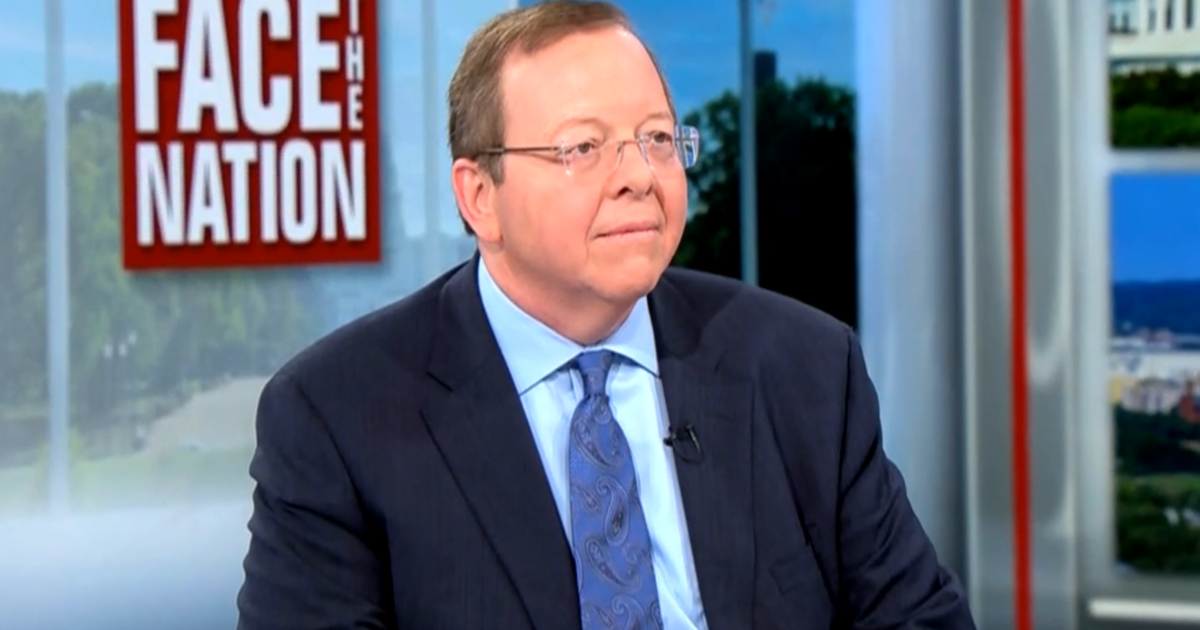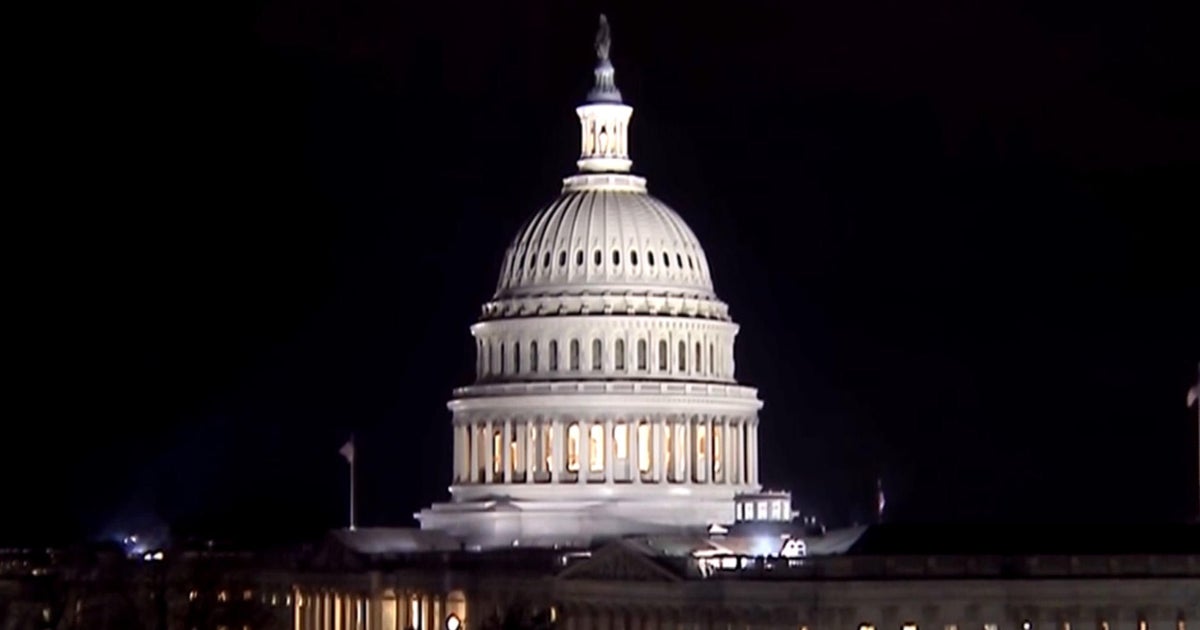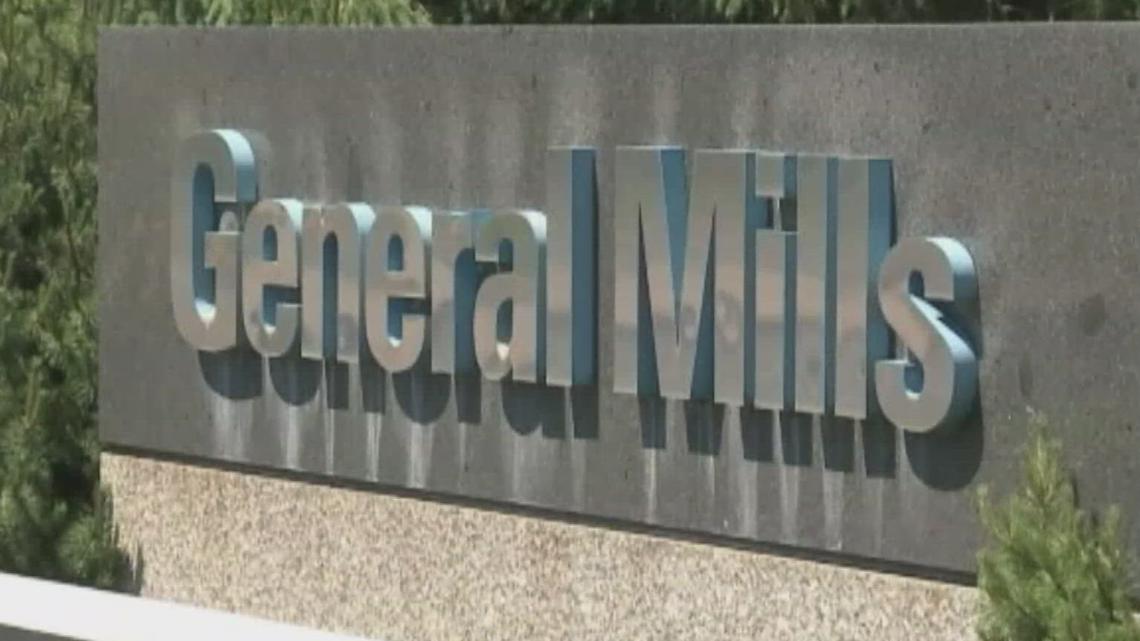CBS News
Transcript: University of Chicago professor Robert Pape on “Face the Nation,” April 28, 2024

The following is a transcript of an interview with University of Chicago professor Robert Paper that aired on April 28, 2024.
MARGARET BRENNAN: And we’re joined now by the founding director of the Chicago Project on Security and Threats, University of Chicago Professor Robert Pape, who has new findings on the college protests over the Israel-Hamas war. Welcome back to the program. I understand you’ve been surveying about 5,000 students, 600 colleges and universities, between December and January. Because this stretches back to right after October 7. What did you learn about what’s happening?
ROBERT PAPE: The big thing we learned is that the feelings of fear on college campuses are more widespread and more intense than we have known. Overall, 56% of Jewish students report feeling in personal danger. Close behind, 52% of Muslim students report feeling in personal danger. And 16% of all students who are not Jewish and not Muslim, this is two to three million college students, also report feeling in personal danger. We also ask them in textboxes, why, and over 1,000 students told us why. And what they’re reporting, Margaret, is not TikTok. What they are reporting is, observing acts of physical violence and intimidation right in front of them. Jewish students are seeing Jewish buildings attacked. Muslim students are seeing people counter back- counter attack against Muslims. The students that are not Jewish and not Muslim, they’re just seeing everybody getting, you know, attacked. Also, protest chants are playing a role. So what we’re seeing in general is that this is not fading away. This is a direct function of the escalation in the Middle Eastern conflict over there. And this is having spillover effects on our campuses, and of course, in some cities.
MARGARET BRENNAN: Well, the Speaker of the House, Mike Johnson, went up to Columbia University this week. You had four Democratic lawmakers, all Jewish, who went, they said in solidarity with Jewish students there, and threatened to withhold federal funding. Is that kind of political involvement helpful, or is it putting fuel on the fire?
ROBERT PAPE: It is putting fuel on the fire, because it’s so one-sided. If Speaker Johnson had gone together with Hakeem Jeffries with an actual plan to bring calm, and we’ll talk about what that might look like, then this is a different story. But by come- making it a surprise, by making threats, you know, if you don’t do X, we will fire Y and we’re going to do X, and this is all a surprise, this is actually not helpful for crowd control at all. So, I also study the actual violent part of this. And the number one thing when you have protests that are building, is don’t do a surprise. In Portland during the George Floyd protests, you might remember DHS surprised Portland, that escalated things. This is a very bad idea. So you need to have a more thoughtful approach to calming tensions that go beyond crowd control, and that are not simply, one side is right, everybody else is wrong. And we’re going to hammer it through until we win.
MARGARET BRENNAN: So who was that first line of action coming from? Is it university presidents? Or are you talking about law enforcement?
ROBERT PAPE: There are roles here for university presidents, law enforcement and national leaders, and actually, talking to law enforcement here directly, in- folks who do this in Chicago, law enforcement is actually much more sophisticated, I think, than you might see from the national here. So that’s why I think it’s so important to focus on the solutions from the perspective of our university leaders, our national leaders, because they are only episodically involved with dealing with violence and political violence. And that’s really why it’s so important to focus on what our university leaders should be doing and our national leaders, beyond simply crowd control.
MARGARET BRENNAN: It sounds like you’re saying, people have forgotten how to have a civil conversation about a heated issue.
ROBERT PAPE: Well, they–
MARGARET BRENNAN: Isn’t that what university is supposed to be about?
ROBERT PAPE: They- they are, but no- October 7, caught all of us by surprise, and it caught universities by surprise. So we are simply- we have policies, we have policies of the Kalven Report at the University of Chicago. These were many of the campus policies and our practices developed in the 1960s. And almost no leader who’s running either our government or university was involved in the 1960s. And the issues we’re dealing with today are new. They’re not completely new, but I would say, like, 90 degrees new, and that is what we have to come to grips with. And not just assume everything was fine before so they will just fade away and they will be fine again.
MARGARET BRENNAN: There’s a lot of focus on the physical protest right now. But going back to October, you had those three Palestinian boys shot in Burlington, Vermont. You had congressional hearings, grilling college, university leaders for not reining in language used on campus. I mean, this has been going on for six months now. Does it stop when the school year ends?
ROBERT PAPE: I don’t think we can count on that for several reasons. Number one, we have graduation season to get through. Number two, many of our colleges now have summer programs that are quite extensive. So for many colleges and universities, things don’t completely come to a halt during the summer, but also next fall. Fall is all- not that far away. And this could also happen again, it could happen in- in the middle of our election season as well. So there are many, many reasons. The Chicago convention. There are many reasons why we should take calming steps now. And again, not just keep assuming, oh, yeah, everything’s fine. We just need to get through the next day or two, or the next week or two, and then things will just fade away. I think that was an assumption by many quite important and credible leaders, that assumption now needs to be pushed aside.
MARGARET BRENNAN: Professor, thank you for your insights. We’ll be back in a moment.
CBS News
Last-minute government funding bill in limbo after opposition from Trump, others

Watch CBS News
Be the first to know
Get browser notifications for breaking news, live events, and exclusive reporting.
CBS News
“CBS Evening News” headlines for Wednesday, Dec. 18, 2024

Watch CBS News
Be the first to know
Get browser notifications for breaking news, live events, and exclusive reporting.
CBS News
The Scott Peterson case: New evidence?

What started out as a college romance ended in murder and mystery.
1994 – Scott Peterson and Laci Rocha met in 1994 while both were attending college at California Polytechnic State University. They married two years later. In 2002, Laci became pregnant. The two lived in Modesto, California and planned to raise their unborn son Conner there.
Laci Peterson Missing
December 24, 2002 – Scott Peterson says that on Christmas Eve morning, he left his pregnant wife alone to go fishing about 90 miles away at the Berkeley Marina. He says that Laci planned to walk the couple’s dog, McKenzie, and mop the kitchen floor. When Scott returned home hours later, he says he found McKenzie there alone, still wearing a leash – but no sign of Laci. That evening, Laci’s stepfather called the police to report her missing.
Searching for Laci
Family, friends, and volunteers launched a huge search for Laci Peterson.
Scott Peterson was interviewed by police in the early hours of Christmas Day. Now-retired Modesto Police Detective Jon Buehler says Scott didn’t seem as interested as one would expect. “Oftentimes, a victim who’s left behind is firing tons of questions at us … And we didn’t get any of that from him,” Buehler told “48 Hours.”
Amber Frey
December 30, 2002 – Less than a week after Laci Peterson went missing, Modesto detectives raced over to investigate an intriguing lead: a Fresno massage therapist named Amber Frey revealed that she had been dating Scott Peterson for over a month. She told police that Peterson had lied to her and said he was single.
Secret Recordings
Former Detective Buehler notes, “Her recall was fantastic. It was almost like it was a script from a Hallmark TV show or something.” Amber Frey recalled every detail of their romantic dates, down to what they were wearing. Hoping for clues that might lead them to the missing woman, detectives ask Frey to record phone calls between her and Scott Peterson, and she agrees.
Affair Revealed
January 24, 2003 – In an explosive press conference one month after Laci Peterson goes missing, Amber Frey publicly reveals her affair with Scott Peterson. “I am very sorry for Laci’s family and the pain that this has caused them,” she said. “And I pray for her safe return, as well.”
Prior to Frey going public, Peterson had told her in a recorded call that he was in Paris when he was really in Modesto while the search for Laci was still on. Eventually Scott admitted to her, “I’ve lied to you that I’ve been traveling.” Those recorded calls would later become part of a damning case against Peterson.
Bodies Found
April 13 and 14, 2003 – Two bodies are found on the shores of the San Francisco Bay. They are later identified as Laci Peterson and her unborn child. The two bodies were found about a mile apart.
Scott Peterson Arrested
April 18, 2003 – Authorities caught up with Scott Peterson at a golf course in San Diego and arrested him. Authorities found a wad of cash, his brother’s ID card, and multiple cell phones inside the vehicle. Days later, Peterson pleaded not guilty to two counts of capital murder.
Trial and Error
June 1, 2004 – Scott Peterson’s trial begins in San Mateo County, California. Because of massive publicity the trial was moved from Modesto to Redwood City, in San Mateo County. The decision was made because the judge decided it would be difficult for Peterson to get a fair trial too close to home, where emotions were running high.
High Suspicions
August 10, 2004 – In what many consider a major turning point of the trial, Amber Frey took the stand for the first time to tell the jury about her relationship with Scott Peterson, a secretly married man, and about all the lies he told her. Frey painted a picture of a dishonest man who could tell falsehoods with ease, hurting his credibility.
Jurors heard the lies for themselves in those recorded phone calls Frey made.
Justice for Laci and Conner
November 12, 2004 – Scott Peterson was found guilty of first-degree murder for the death of his wife Laci and second-degree murder for the death of his unborn son Conner. Crowds outside cheer.
Peterson Jurors
March 16, 2005 – Four months after his conviction, Scott Peterson is sentenced to death. At a press conference, Juror No. 7, Richelle Nice, [pictured center] called Peterson a “jerk” and commented “San Quentin is your new home,” referring to the prison where he would serve his sentence. Nice was nicknamed “Strawberry Shortcake” during the trial because of her hair color.
Death Sentence Overturned
August 24, 2020 – After two appeals, Scott Peterson’s death sentence was overturned by the California Supreme Court after deciding that the original trial judge made a mistake when jurors were being picked for trial. The result of that mistake, Peterson’s supporters say, was that the jury was stacked with pro death penalty jurors. Peterson, shown here in 2018, will now receive a new trial for only the sentence phase.
The court upheld his murder convictions.
Juror No. 7
October 14, 2020 – The California Supreme Court orders a lower court to reexamine Peterson’s murder convictions and decide if he should get an entire new trial. Scott Peterson’s supporters say it all comes down to the actions of that juror once nicknamed “Strawberry Shortcake” – Richelle Nice, pictured here in 2005.
During jury selection, prospective jurors filled out a questionnaire asking if they had in the past been in a lawsuit and if they had been crime victims. Nice checked no. “It’s pretty clear… that she lied to us straight to our face about her own situation,” Peterson’s current attorney Pat Harris told “48 Hours.” In fact, Nice was involved in two domestic disputes in the past. But prosecutors say when Nice filled out that questionnaire she didn’t lie, she just didn’t think her past experiences were relevant to the questions and didn’t see herself as a victim. Now a lower court will consider if Peterson will get a complete retrial. Richelle Nice declined to speak with “48 Hours.”
New Evidence?
March 7, 2021 – CBS News’ Jonathan Vigliotti interviewed Scott Peterson’s sister-in-law Janey Peterson in her “war room” of evidence she claims proves his innocence. She claims witnesses saw Laci walking in the neighborhood near the Peterson home after the time Scott said he left for the fishing trip. If that’s true, Scott couldn’t have killed Laci.
Scott Peterson’s attorney explains, “there’s been a lot of criticism because we didn’t call some witnesses who saw Laci that day,” and that the thought process at the time was that “a number of the witnesses who saw her didn’t have great – memories or had contra – were contradicting each other.”
Retired detective Jon Buehler says there are no witnesses who saw Laci alive that morning. He says there were other young women in the neighborhood who were pregnant and looked similar to Laci, and that “it would be real easy for somebody to mistakenly see one of those three girls as being Laci.” Still, Janey Peterson insists that Scott is innocent.
A Burglary
Perhaps more important to a new defense case is what Janey Peterson believes actually happened to Laci. She points to a burglary she believes happened on the same day Laci disappeared, right across the street from the Peterson home. Scott Peterson’s supporters theorize that Laci confronted the burglars and that ended badly. But police quickly arrested the burglars – Steven Todd and Donald Pearce – pictured here in a 2003 Modesto Police Department press release.
Awaiting a Decision
April 27, 2021 – Scott Peterson appeared in court remotely for a status hearing on a new death penalty trial.
Dec. 8, 2021: Scott Peterson was resentenced to life in prison without the possibility of parole for the deaths of his wife and unborn child.
2024: The Los Angeles Innocence Project took up Peterson’s fight for a new trial. Since then, a California judge has granted his defense team access to previously undisclosed evidence as well as permission to do additional DNA testing.
Peterson and his supporters maintain the wrong man is in prison for Laci and Conner’s deaths. According to Detective Buehler, “Well, I guess it’s possible. But you know, there’s still people that believe the Earth is flat too.”



















